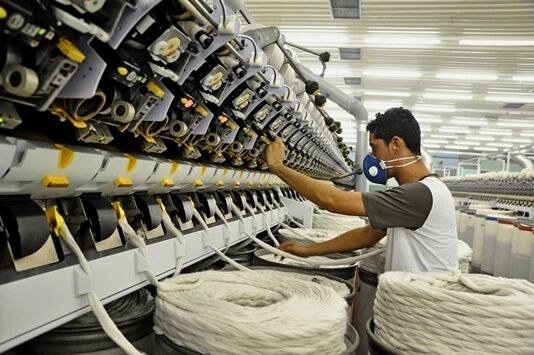
The International Monetary Fund (IMF) has raised its expectations for Brazil's economic growth this year but anticipates a more pronounced slowdown in 2026. This forecast comes from the "World Economic Outlook Report" released on October 14.
According to the report, the IMF currently projects a 2.4% growth in Brazil's Gross Domestic Product (GDP) for 2025, an increase of 0.1 percentage points from its July forecast. However, the growth expectation for 2026 has been revised downward by 0.2 percentage points to 1.9%. The IMF stated, "In Brazil, economic activity is showing signs of slowing down due to tight monetary and fiscal policies."
The IMF's growth forecast for Brazil this year is slightly higher than the Brazilian government's expectation (which is 2.3%). However, by 2026, Brazil's Ministry of Finance is more optimistic, predicting economic growth to reach 2.4%.
In the second quarter of this year, according to data from the Brazilian Institute of Geography and Statistics (IBGE), economic activity in Brazil increased by 0.4% quarter-on-quarter, aligning with market expectations of a slowdown under contractionary monetary policy. IBGE is set to release third-quarter GDP data on December 4.
In August of this year, U.S. President Trump announced a 50% tariff on some products exported from Brazil to the United States, partly in response to what he termed "political persecution" by the Brazilian government against former President Jair Bolsonaro for his involvement in a "coup attempt" case.
Currently, Brazil is working towards negotiations with the United States to resolve this issue. Earlier this month, President Lula had a phone conversation with Trump, and both parties are planning to have a face-to-face meeting soon.
The IMF report indicates that Brazil's average annual inflation rate for this year is expected to be 5.2%, projected to decrease to 4.0% by 2026. Furthermore, the IMF points out that like France, the United States, and other countries, Brazil's public debt as a percentage of GDP is expected to significantly increase in 2025.
The IMF has adjusted its growth expectations for "emerging markets and developing economies," forecasting a 4.2% growth for these economies this year (up from 4.1% previously) and maintaining the 4.0% growth forecast for 2026.
The report states, "The increase in tariffs by the U.S. is weakening external demand, impacting significantly on large economies reliant on exports, and trade policy uncertainty is also dampening business investment. Limited fiscal space is also weakening the government's ability to stimulate domestic demand." In Latin America and the Caribbean, the IMF predicts economic growth of 2.4% in 2025 and 2.3% in 2026. The improvement in the region's growth expectations is primarily attributed to Mexico, whose growth forecast for this year has been revised upward by 0.8 percentage points to 1.0%.
